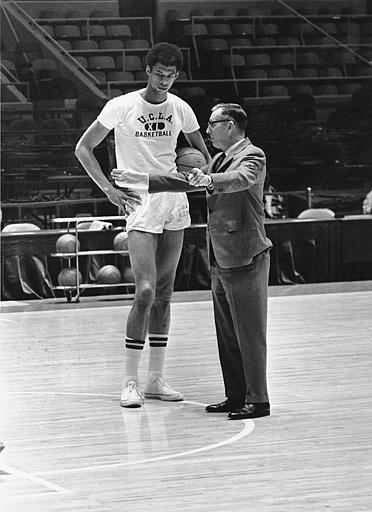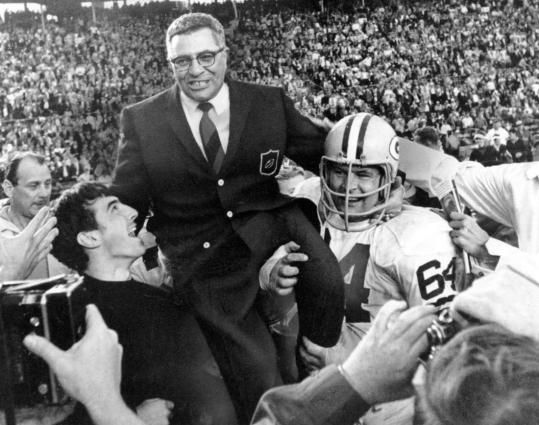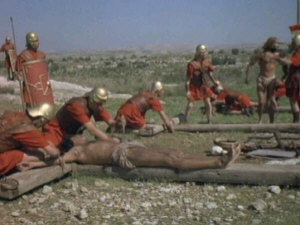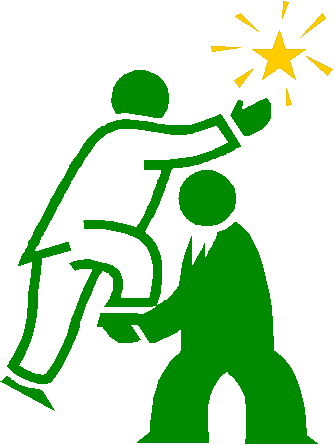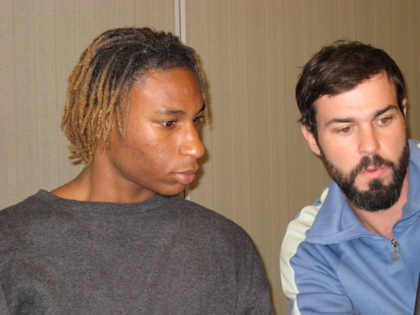PrinceOfPeace
Coaching
Read through the Bible in one year
with a mentor who can help you see
that Peace is Possible
Isaiah 9:6-7
6 For unto us a Child is born,
Unto us a Son is given;
And the government will be upon His shoulder.
And His name will be called
Wonderful, Counselor, Mighty God,
Everlasting Father, Prince of Peace.
7 Of the increase of His government and peace
There will be no end,
Upon the throne of David and over His kingdom,
To order it and establish it with judgment and justice
From that time forward, even forever.
The zeal of the Lord of hosts will perform this. |

Luke 2:13-14
13 And suddenly there was with the angel a multitude of the heavenly host praising God, and saying,
14 Glory to God in the highest,
And on earth peace among men
with whom He is well pleased.
Matthew 5:9
Blessed are the peacemakers, For they shall be called sons of God.
|
|
|
What is a Coach?
A sports coach will make you run more laps than you feel like. A sports coach pushes an athlete to achieve optimum performance, provides support when the athlete is exhausted, and teaches the athlete to execute plays that the competition does not anticipate. To maximize performance, the coach will make sure the athlete gets in shape before the season begins, knows the rules of
the game and the team playbook, and practices. Someone has said, "Stretching is necessary to have a successful practice. Not stretching can be dangerous and unhealthy." A coach makes the athlete stretch. A sports coach will tell it like it is.
The role of the Business Coach is to coach business owners to improve their business through guidance, support and encouragement. They help the owners of small and medium sized businesses with their sales, marketing, management, team building and so much more. Just like a sporting coach, your Business Coach will make you focus on the game.*
A Bible Coach makes you read the Bible more than you feel like. The Christian Scriptures teach that life is like a race that we need to train for, run hard, and win. A Bible Coach
pushes you in the race set before you (Hebrews 12:1; 2 Timothy 4:7), helping you apply what you read, building personal habits, overcoming defects of character that keep you from winning the race and being awarded an imperishable crown (1
Corinthians 9:24-25). |
How Does Coaching Work?
|
A coach tells people what they do not want to hear and shows them what they do not want to see so that they can be all that they can be. |
|
-- Vince Lombardi |
If you don't want to be a star football player, don't hire Vince Lombardi to be your coach. If you don't want to be a star basketball player, don't hire John Wooden to be your coach.
If you want to be an extraordinary Christian, hire a coach who can help you become an extraordinary Christian.
Then get ready for an extraordinary journey.
Because neither you nor your coach knows the exact route, and neither of us know exactly what kind of person you'll be when you get there. |
|
|
|
|
The journey could be rough. We're going to follow in the footsteps of Christ. Along the way you may be put to death by the sociopathic soldiers of a tyrannical government. But we'll eventually reach the New Jerusalem, the "City of God."
Your coach is on the same journey. We may split up for a time, and then be rejoined when our paths cross again. Or we may not see each other until we reach The City on different paths. But together we can discern the next step for you, and your coach will inspire and empower you to take that next step. Then you'll see more. Your coach empowers you, but will not allow you to become dependent on the coach.
|
|
What is Coaching?
See what other coaches say:
Here are some coaches, randomly selected. Note the services they provide, the goals they claim to achieve, and the prices they charge. We believe our program is superior if you want to become an extraordinary American, an extraordinary Christian, and an extraordinary human being.
The quality of a person's life is in direct proportion to their commitment to excellence, regardless of their chosen field of endeavor
Vince Lombardi
|
|
|
If you read some of the definitions of modern "coaching" in the box on the right, you'll discover that they're very different from Vince Lombardi, and unlike the kind of coaching we offer here.
If you're on a professional football team, and the Coach tells you to run with the ball downfield as fast as you can, and you go the opposite direction, your team won't get points for a touchdown, the other team will get points, and you will probably get kicked off the team (if you were deliberately ignoring the Coach's instructions).
If you're on a professional football team and you insist on using a baseball, basketball, or tennis ball, again, you'll probably get kicked off the team.
So the first question is, Which Sport Are You Playing? Which Race Are You Running? Who Makes the Rules?
Most modern "life coaches" believe "the client has all the answers within." If you're running down the field in the wrong direction, most modern coaches believe they must be "non-judgmental." As Ludwig von Mises (arguably the greatest economist in the 20th century) would put it, the economic coach won't tell you what you ought
to do (morally speaking), but will only inform you of the pragmatic results of your actions: "If you engage in policy X, you will achieve result Y." The modern economist offers no ethical judgment as to the morality or sinfulness of policy X.
Our coaching program involves the construction of a Biblical Worldview. All the options of life are viewed through this worldview. In order to develop this worldview, we prescribe a training course in which the athlete reads the five most important works in the history of Christian Civilization. The goal of this program is to develop a
Biblical Worldview.
After this program is completed, we embark on a program of personal coaching. During the time you study the training materials and develop a Biblical Worldview, you will also learn how to be coached. This is a discipline in itself.
An Example of Secular Coaching
Christians can learn many things from non-Christian coaches. There are also many ideas and practices which are toxic. Here are the opening paragraphs from an article in The New Yorker, April 22, 2002 v78 i9 p114(11) entitled, "The Better Boss: How Marshall Goldsmith Reforms Executives, by Larissa MacFarquhar.
Abstract: Goldsmith's career as an executive coach who trains executives to be respectful of others to help in employee retention and formation of strategy. His techniques and some case studies are described.
Marshall Goldsmith's official job description is "executive coach": he trains executives to behave decently in the office, by subjecting them to a brutal regimen. First, he solicits "360° feedback" -- he asks their colleagues and sometimes their families, too, for comprehensive assessments of their strengths and defects
-- and he confronts them with what everybody really thinks. Then he makes them apologize and ask for help in getting better. It's a simple method -- "I don't think anybody's going to say I'm guilty of excessive subtlety," he says -- but it works. It had better work. If it doesn't, the client gets his money back.
Goldsmith won't take on a client who doesn't want to change -- someone who, as he puts it, has not a skill problem but a don't-give-a-shit problem -- but, short of that, the more obnoxious the better. "My favorite case study was in the 0.1 percentile for treating people with respect," he says. "That means that there were over a thousand people in that company and this person came in dead last. This person would be in an
elevator and someone would come up and say, 'Hey, how's it going?,' and he wouldn't even respond. He was hardworking and brilliant; he didn't lie, cheat, or steal. He was just a complete jerk. The case was considered hopeless, but in one year he got up to 53.7 per cent.
"You know how I helped the guy to change? I asked him, 'How do you treat people at home?' He said, 'Oh, I'm totally different at home.' I said, 'Let's call your wife and kids.' What did his wife say? 'You're a jerk.' Called the kids. 'Jerk.' 'Jerk.' So I said, 'Look, I can't help you make money, you're already making more than God, but do you want to have a funeral that no one attends? Because that's where this train is
headed."
When Goldsmith started executive coaching, in the early eighties, he was a pioneer. Coaching really came into its own as an industry about five or six years ago, when employee retention became a serious problem. Prosperous baby boomers were retiring early, and members of Generation X were looking for variety and fulfillment rather than security. Human-resources departments, meanwhile, were calculating the cost of losing an important
employee (between one and two times the employee's annual salary and benefits, according to one estimate), and had discovered that one of the two main reasons that people left jobs was that they hated their boss (the other being the general failure of the company). Clearly, it was foolish to lose talent for no better reason than that a vice-president appeared to his subordinates to be insufficiently interested in what they had to say.
Moreover, a bad attitude on the part of senior management was held to be detrimental not only to retaining employees but also to the formation of strategy. The old-fashioned leader, with his bulldozer personality and his single-minded certainties, was thought to be too arrogant to lower his ear to the ground and listen for changes coming. Thus, the executive coach.
Coaching being still in its chaotic, juvenile phase, there are, as yet, no licensing requirements of any kind. Anyone can call himself an executive coach, and thousands do. Schools are springing up everywhere: Coach Universe and Coach U conduct classes by phone; CoachVille.com
trains coaches for a seventy-nine-dollar lifetime-membership fee. For this reason, first-to-market coaches like Goldsmith, who already have solid reputations and have received notices in the business press (he was listed as one of five top coaches by Forbes, and in the top ten by the Wall
Street Journal), are flourishing. Goldsmith's current clients include ChevronTexaco, Motorola, Thomson, and Pitney Bowes. Some executives remain suspicious of coaching, thinking of it as a reproach or as enforced psychotherapy, but more often these days the offer of a coach is taken as a compliment -- a sign, since the service is expensive, that a person is being groomed for significant promotion.
One of Goldsmith's clients is an executive in a large corporation. He is high-ranking -- only a step or two from the top. None of Goldsmith's clients are far from the top -- his services are too expensive to waste on mid-level managers. (He won't say how much he charges, but it is reported to be in the high five figures per client per year, which makes him one of the best-paid coaches in the field.) On a recent visit to the executive's
office, Goldsmith ran into his client in the hallway, where the two of them were spotted by a little white-haired man wearing a red bow tie.
"Who's getting their head shrunk today?" asked the white-haired man in a jovial tone. The executive gave him a pained smile.
The executive was in his early forties and wore an open-necked white shirt. He had the genial, Saturday air of a man with a beer, making a seamless transition from fraternity to barbecue -- an air that, by all accounts, had served him well in his work. But, at the same time, there was a tense wariness about him. The people in marketing who worked under him thought he was terrific, but his peers were tired of what they felt were his
incessant competitive put-downs, and people in sales felt that he had failed, as Goldsmith primly put it, to treat them like customers. The executive had to stop being so territorial, the C.E.O. decided. Goldsmith was called in and signed up for a year.
The Commitments of Vine & Fig Tree Coaches
I want to be your personal coach.
I want to inspire you, empower you, guide you, help you find answers to your questions, nag you, encourage you, and be a tool in your transformation into a Christian Anarchist.
I promise to be patient with you, no matter how frustrated you get.
I promise not to compel you or try to force you to believe everything I believe, in exactly the same way I believe it.
I just want to be a part of your journey. I've been on a similar journey. I've gotten frustrated with people who told me I should not become an anarchist. I've struggled to believe the Bible rather than the politically-accredited and socially-accepted celebrities in the world around me.
I've cut a path through the forest. I'm still cutting. Let me join you as we re-trace the steps I've traveled. At some point God may call you to leave the path I've been cutting so you can cut another path. It's a big forest. We need lots of paths. Eventually you and I will make it to the other side: the City of God.
* Paul Fagan
- For generations, George Washington was the most revered man in America. His portrait could be seen in every public building, in every school, and in many bedrooms of America's boys. He was a hero and an icon.
-
- Today's Americans know very little about the man.
- • They know that his face is on the one-dollar bill ...
(but they don't know that the government has
destroyed over 90% of the value of the dollar)
- • They've been told he "owned slaves."
(He inherited slaves, and worked to free them.
Washington would say that the ordinary American in
2011 is a slave -- most Americans prefer a form of
pampered slavery rather than freedom and
personal responsibility. Proof here.)
- • That's pretty much all they can tell you about George Washington.
- Americans 100 years ago would be flabbergasted that that's about all Americans in 2011 know about George Washington, "the Father of his Country."
- But today's Americans, despite their ignorance, would have very dogmatic opinions about George Washington if he were alive today. He would probably be arrested by the Department of Homeland Security.
George Washington led the American colonists in an effort to abolish a tyrannical government. The government he called a "tyranny" had a tax on a pound of tea that was ten times lower than the tax we pay on a gallon of gas. What he called a "tyranny" was more representative than our modern "Administrative State,"
and "tyrants" in his day would never have dreamed of using colonial tax revenue to fund abortions, marry homosexuals, or remove all copies of the Ten Commandments from public schools and courthouses.
- Today is a good day to resolve this question in your mind:
- • Should you admire Washington and try to emulate his virtues?
- • Or should you despise him and his values, and pay more attention to today's heroes -- Barack Obama and Hillary Clinton?
- If you suspect that Americans 200 years ago Americans were a better judge of good character and had higher values than Americans today, then you should enroll in GeorgeWashingtonCoaching.
|
Short Biography of Washington
Praises for Washington by his contemporaries
"His integrity was most pure, his justice the most inflexible I have ever known, no motives of interest or consanguinity, of friendship or hatred, being able to bias his decision. He was indeed, in every sense of the words, a wise, a good, and a great man." -- Thomas Jefferson
- How would integrity, courage, morality, and wisdom transform your life:
- • your marriage
- • your business
- • your children
- • your relationship with God
- Do people with integrity, courage, morality, and wisdom succeed better than people who are cheats, wimps, immoral, and foolish?
- Of course they do.
- In general, that's how the universe works. According to George Washington and America's Founding Fathers, the universe is governed by the "Invisible Hand" of "Divine Providence." Job was an exception. At least at
first. And you may live (temporarily) under a tyrannical government that punishes extraordinary people and rewards cheats, wimps, immoral, and foolish people instead. But in the long run, you are better off being extraordinary. Your country is better off if you resist tyranny and become extraordinary.
|
- Our program is extraordinarily simple.
- extraordinarily powerful.
-
- The program is simple:
- We follow George Washington's advice.
- We learn from his example.
We avoid his mistakes.
-
- The program is powerful:
- It's the same program that made America
- the most prosperous and admired nation in history.
|
Some people have asked:
- Why is George Washington worth imitating or following?
- What would George Washington's advice to me be?
- What ideas are taught in this program?
- Can I be a good American without trying to be an extremist like George Washington?
- Can I be a good Christian if I'm not even a good American?
- Is this coaching program easy or hard?
- How will this program benefit me?
- Who is behind this program?
- Do I have to wear a powdered wig to participate?
- Answers are here.
|
| What would George Washington say about you if he were your personal coach?
If you're like me, he would say you're a lousy Christian and a stinking rotten American.
Ouch!
Why would he say that?
Because he led troops into battle to fight taxes like a three-pence per pound tax on tea, and you do nothing over tax on a gallon of gas that's TEN TIMES HIGHER. The total tax burden in the colonies was less than 2% of colonial income, but today's government takes over half of everything you earn. Like those who signed the Declaration
of Independence, George Washington was among those who risked "our Lives, our Fortunes and our sacred Honor," but today's government makes it illegal for teachers in public schools to teach students that the Declaration of Independence is really true. (Sure, they can
teach that guys in powdered wigs used to believe it to be true, but teachers cannot teach that the Declaration of Independence really is objectively true, endorse the contents, or promote it.)
|
If you're an athlete and you want to win a race, you get yourself a coach. Your coach will encourage you, nag you, maybe yell at you, in order to drag out your maximum performance so you can win the race and take home the Gold Medal.
George Washington said if you want to be a great human being, you need to be a great American and -- more important -- a great Christian. The Christian Scriptures teach that life is like a race that we need
to train for, run hard, and win.
So if you want to follow George Washington's advice, you need a coach.
Wouldn't it be great to have George Washington as your coach! He coached the Continental Army to victory over the mighty British Empire. He coached the Constitutional Convention to agreement on a new Constitution. And after he served as America's first President, he became known as "the Father of his Country."
Keep reading this page and you learn the two things you need to become an extraordinary American, an Extraordinary Christian, and an extraordinary human being. You need to learn the basic skills of winning life's race, and you need encouragement from a coach. This is where you get both. |
You are a victim of Educational Malpractice.
Compared to colonial Americans, you are an ignorant barbarian. Sure, you know how to use your Blackberry. But bring a 9-year-old into the 21st century from 1776, and the kid would be able to figure out how to use your computer and remote control as fast as you did. But Colonial Americans could read the Federalist Papers and debate the issues intelligently. You can't. They had the moral courage to fight against tyranny. You don't.
There were three things that America's Founding Fathers believed schools should teach, and you were deprived of all three -- by law. These three things are prescribed in America's "Organic Law," and even today can still be found in many state constitutions, but you probably don't even know what "organic law" means.
What were the three things that every school in America was supposed to teach?
What are the three things that made America the most prosperous and admired nation in history?
What are the three things that have been taken out of government-run schools in the 20th century, and as a result have crippled Americans like you and me, leaving America a bankrupt and despised nation?
GeorgeWashingtonCoaching will tell you, and will transform you into
- • an extraordinary American
- • an extraordinary Christian
- • an extraordinary Human Being
|
George Washington's Advice
On May 2, 1778, when the Continental Army had emerged from its infamous winter at Valley Forge, Commander-in-Chief George Washington issued the following:
The commander-in-chief directs that divine service be performed every Sunday at eleven o'clock in those brigades [in] which there are chaplains; those which have none [are] to attend the places of worship nearest to them. It is expected that officers of all ranks will by their attendance set an example to their men. While we are zealously performing the duties of good citizens and soldiers, we
certainly ought not to be inattentive to the higher duties of religion. To the distinguished character of patriot, it should be our highest glory to add the more distinguished character of Christian. The signal instances of providential goodness which we have experienced, and which have now almost crowned our
labors with complete success, demand from us in a peculiar manner the warmest returns of gratitude and piety to the Supreme Author of all good.—
The Writings of George Washington, JC Fitzpatrick, ed., Wash. DC: US Gov't Printing Office, 1932, Vol. XI:342-343, General Orders of 5/2/1778
On May 12, 1779, in a speech to the Delaware Indian Chiefs, Washington coached them:
You do well to wish to learn our arts and ways of life, and above all, the religion of Jesus Christ. These will make you a greater and happier people than you are. Congress will do every thing they can to assist you in this wise intention.
The Writings of George Washington, JC Fitzpatrick, ed., Wash. DC: US Gov't Printing Office, 1932, Vol 15, p.55.
|
George Washington has been criticized for owning slaves -- even though he inherited them, and even though it was illegal for him to free them (when Virginia tried passing laws against slavery, the King of Britain overruled them). But being a slave in a Christian nation is better than being "free" in an atheistic nation.
In the Soviet Union, workers on the collective farms were allowed a small plot of land to grow what they wanted, and sell for whatever they could get. These small plots of capitalism saved the entire nation from starvation. "Two percent of privately owned Soviet farmland was producing fully 30 percent of the country’s grain."
Today's Secular America is like the atheistic Soviet Union. The government claims ownership of more than 2/3 of everything you earn. The majority of industry is regulated by the State. Yet the small amount of freedom left to us provides us with iPods, big-screen TV, microwaves, and info-tainment. We think we are wealthy. But we are not free.
In America, the percentage of privately-owned property -- truly and securely owned -- is not much different from the percentage in the Soviet Union. George Washington's ideal was for every American to live peacefully under his own "Vine & Fig Tree." This was the original "American Dream." Today's
"American Dream" is a fixed-rate mortgage. The bank actually owns your home. This is a form of slavery, as anyone who signed the Constitution would tell you. Even if you pay off your mortgage, the U.S. Supreme Court has ruled that the government can take your home and give it
to someone else who might use your property differently and pay more taxes to the government than you do.
 Consider the challenge of Samuel Adams. Consider the challenge of Samuel Adams.
Americans today love "wealth" (if "gangsta-rap cell-phone ring-tones" can be considered "wealth") better than liberty and personal responsibility. Because Americans have been denied the three most important features of colonial schools in America, they are ignorant and illiterate -- like slaves.
GeorgeWashingtonCoaching will transform you into
- • an extraordinary American
- • an extraordinary Christian
- • an extraordinary Human Being
|

Samuel Adams, speaking at the State House in Philadelphia, “to a very numerous audience” on August 1, 1776:
“If ye love wealth better than liberty,
the tranquillity of servitude more than
the animating contest of freedom
—go from us in peace.
We ask not your counsels or arms.
Crouch down and lick the hands which feed you.
May your chains sit lightly upon you, and
may posterity forget that ye were our countrymen!
If you are an ordinary American, you are a pampered slave. You are wealthy beyond the imagination of anyone alive in 1776. But you would rather keep the remote control of your TV than fight for liberty and personal responsibility.
|
In a nutshell, public schools 200 years ago taught Americans to follow George Washington's advice: to be a good Christian.
- The human beings that settled the New World
- were the same species of humans that remained in Europe.
- But America became extraordinary,
while Europe stagnated under monarchy and socialism.
- The difference was ideas.
- Ideas have consequences.
These same ideas can have consequences in your life.
In 1776, America had become the pinnacle of Christian Civilization, also called "Western Civilization." Personally, Americans were hard-working and charitable. Politically, Americans perceived that the initiation of force by government was inconsistent with Christianity. America was a land of "Liberty Under God," a
"City upon a Hill," a light to the world.
The Internet gives an adult living in 2011 the capability of re-creating a colonial education in just one year. If you can muster the moral courage to give up one hour of the mainstream media and replace it with the GeorgeWashingtonCoaching Program, you can begin acting as your own "City upon a Hill" and influence your culture -- from your neighborhood to
our globe.
|
You Need to Read the Five Most Important Works in the History of America and Western Civilization
There are three main components of the George-Washington-Coaching
Program. The first is reading the five most important works in the history of America and Western Civilization. Most Americans in 1776 knew these ideas backwards and forwards, and certainly a lot better than most Americans today. You may be in the top 1% of Americans in terms of knowing these key ideas, and yet be in the bottom 50% of Americans in 1776.
The first book, of course -- the most significant book in the history of America and Western Civilization -- is the Bible. During the next 365 days, you will read the Bible from cover to cover in a way you never have before. In 1837, the Supreme Court of Delaware said this:
Long before Lord Hale declared that Christianity was a part of the laws of England, the Court of Kings Bench, 34 Eliz. in Ratcliff's case, 3 Coke Rep. 40, b. had gone so far as to declare that "in almost all cases, the common law was grounded on the law of God, which it was said was causa causans," and the court cited the 27th chapter of Numbers, to show that their judgment on a
common law principle in regard to the law of inheritance, was founded on God's revelation of that law to Moses.
State v. Chandler, 2 Harr. 553 at 561 (1837)
Day by day, your eyes will be opened as you see how the Bible is the foundation of liberty and civilization as we know it. |
GeorgeWashingtonCoaching is a rigorous distance-learning program that helps you learn these ideas and develop the skills to put them into effect and promote them in our society. It is a year-long program equivalent to four university-level courses. The homework assignments are free. There is a fee for nagging. You'll need lots of nagging. Sign up for
more information on how to get started:
Enrollment in the GeorgeWashingtonCoaching Program is limited. This mailing list will send out an announcement as soon as enrollment is open.
If you have other questions, or if you don't want to get on our mailing list using the form above, please use the box below. Include your email address if you would like a direct, personal answer to your question without being added to our mailing list.
Enrollment is limited.
|
You Need to Learn and Avoid the Three Biggest Mistakes George Washington and America's Founding Fathers Made
You're going to have your world turned upside down when you hear why Patrick Henry ("Give me liberty or give me death") and George Mason ("Father of the Bill of Rights") both opposed the Constitution.
- The Constitution was a big mistake
- The American Revolution was a big mistake
- The idea of "human rights" was a big mistake.
You Need A Coach
You need someone to push you, so that you can accomplish all that you're capable of accomplishing.
You Need a Community
You will benefit by participating in on-going discussions with other people who are having their world turned upside down by the most important ideas in American history.
- Great ideas,
- big mistakes,
- firm but gentle encouragement.
After one year, you will not be the same person. You will be
- an extraordinary American
- an extraordinary Christian
- an extraordinary Human Being
Or you get your money back. |

